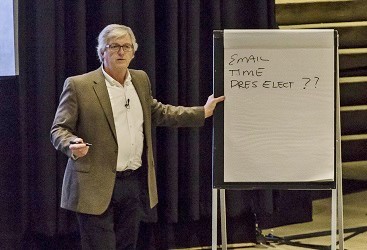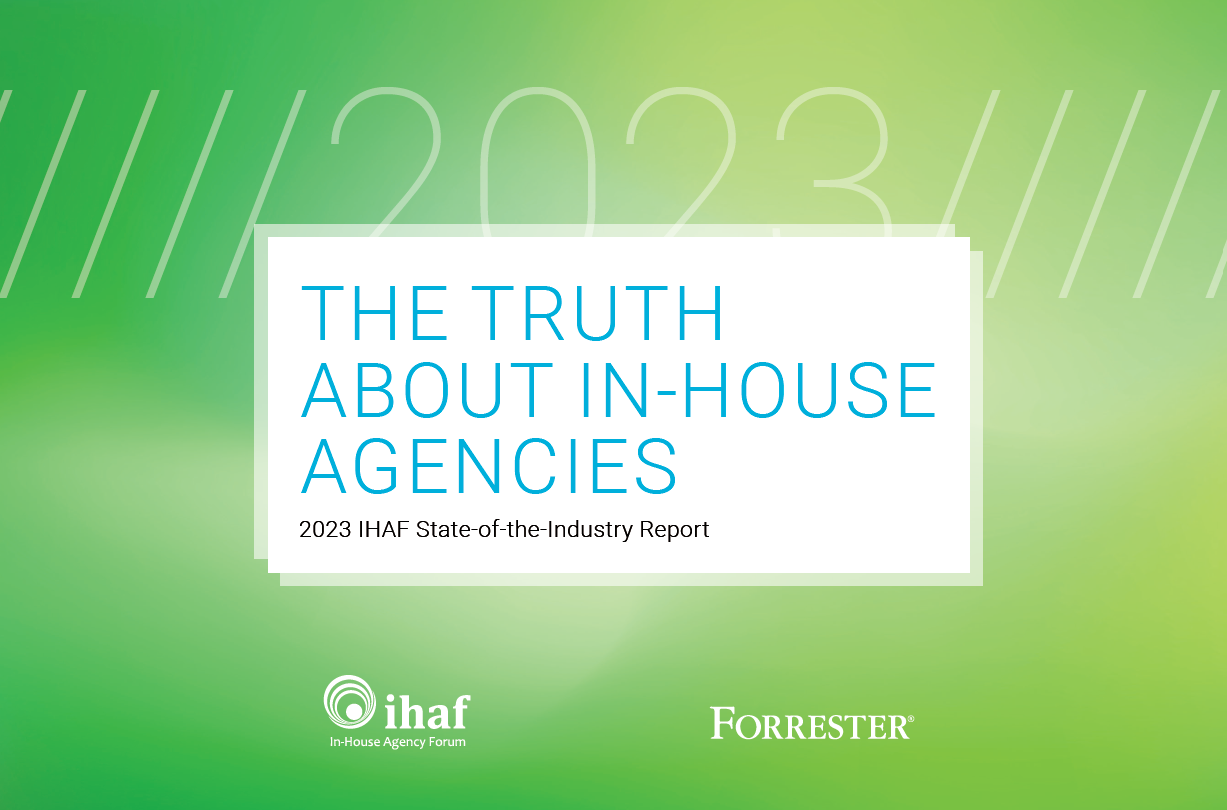Making Our Way Through Change

Immediately following the recent presidential election, I found myself delivering a keynote presentation on Change at the IHAF conference—appropriately entitled, Ready or Not. My topic wound its way through the psychology of change reactions, Theory U and The Dark Night of the Soul (or what happens when it all caves in on you). Not knowing the outcome of the election as I drafted my presentation, I presumed that whatever the result, some in the audience would be apprehensive about the change that was about to happen.
I was right!

Only my audience seemed to be comprised of a majority reeling in fear, indicating that their worst apprehensions were about to be manifest. What I spoke about was how fearing the future removes us from the present, and that is where we might be able to do something different.
What I spoke about was how to care for yourself when everything you hold true no longer describes your current reality. And what I heard in response to my presentation was that it helped make sense of this confusing time. I don't think a speaker can receive a higher compliment than that. I felt totally blessed, and would like to share my ideas with those who were unable to attend.
Change affects us in interesting ways. Up to a certain point (and that varies by person), change does not have a negative impact on us. Quite the contrary, in fact, as it can help us improve our efficiency and effectiveness. We actually get better at doing things when we embrace change. And while it sometimes feels a tad uncomfortable, that’s only because change forces us out of the comfort of our assumptions of how the world “is” and what we assume should be happening.
Change causes us to make corrections, improve thinking, find short-cuts, and gain insights. Beyond that, there can be a drastic uptick in productivity and output with even the slightest added change. I call these “spot weld” moments—moments of pure genius, though entirely unsustainable for extended periods.
When we are not able to solve the issues we face during those spot-weld moments, we sometimes plummet into dysfunction. Things collapse in on us and become overwhelming. The funny (or not so funny) thing is that what pushes us over the edge might be small—not even a matter of consequence. And that can trigger what the mystics have labeled The Dark Night of the Soul.
What distinguishes The Dark Night from depression is that it is more about our belief structure than the emotional essence of the experience. The world no longer makes sense using our long-held beliefs. We can question our self-esteem, our assumptions, and even our deity. And if The Dark Night does its job and we get to a place of actually grieving the loss of our beliefs and the loss of our “immortality,” we just might emerge with a brand new awareness and calming sense of clarity. It can be a tough road, though most of us make it through.There is an alternative to The Dark Night, however, and that is to retreat to dualism.
All of us began our logical lives as dualists—it’s how children learn. There is a good and a bad, an us and a them, a right and a wrong. As we gain experience, that unfolds into a kind of multi-layered dualism (shades of right and wrong) and eventually to the complex levels of morals we learn as adults. As renowned author and modern-day philosopher Ken Wilbur points out, this development is an “include and advance” where we don’t toss out dualism completely because, after all, some things are just wrong.
So, when faced with the reality of our constructed logic getting blown up in The Dark Night, we are sometimes tempted by the simplicity of dualism. (Notice that as the world has gotten faster and more complex, more and more fundamentalist/dualistic groups have surfaced.) It's not wrong, however, because in The Dark Night of nothingness, having even one sure answer seems comforting.
Personally, I believe our world has been in a collective Dark Night of the Soul…there are no clear or easy choices, unless we retreat to dualism where someone is certain to offer a simple and singular answer. And, that is not the answer.
As the complexity and rate of change that surrounds us increases, our call should be toward collaboration. Rather than creating schisms between ourselves and others under the belief that there are only two sides to a problem (a right and a wrong, a good and a bad), let's embrace a more communal approach. Our ability to collaborate effectively with others—particularly those with differing viewpoints—will not only help us to cope, it will enable us to more successfully navigate the complexity of today and the constancy of change that goes along with it.
- advertising,
- agency,
- association,
- brand,
- change,
- client,
- CMO,
- collaboration,
- communication,
- conference,
- content,
- coping,
- corporate,
- creative,
- dark night of the soul,
- election,
- events,
- girrell,
- IHAF,
- in-house,
- innerworks,
- insource,
- internal,
- leadership,
- marketing,
- management,
- membership,
- networking,
- partnership,
- professional,
- social,
- spot weld,
- stress,
- team,
- theory u,
- trends,
- wilbur
Recent Posts

In-House Data: Fact or Fiction?
October 16, 2023
I’m going to be honest with you, which I always am but this time it’s scary honesty. There are a lot of in-house agency research reports out there. And not all of them contain data that are close to the integrity of the studies IHAF publishes—the next of which drops at the IHAF conference on …

IHAF Wrapped
December 20, 2023
One of our favorite things to do at year-end is look back at the events, presentations, and online resources our members tapped most. (Why should Spotify have all the fun?) Here are a few of your favorites in 2023:
• New Assortment of Org Charts Download • Updated Job Profiles …











No Reader Comments